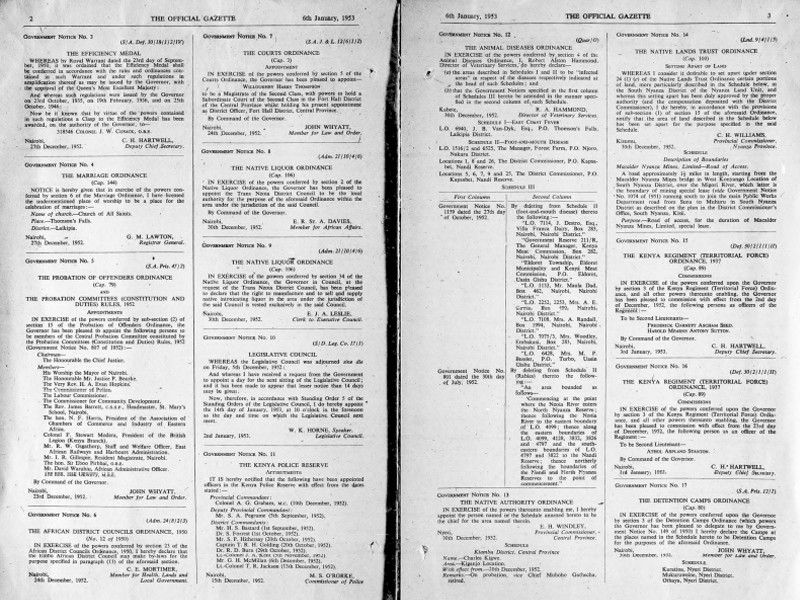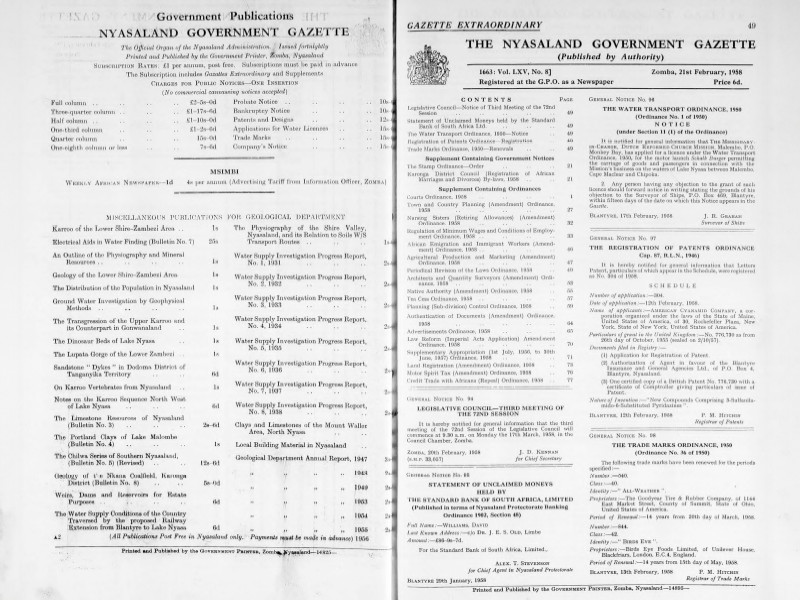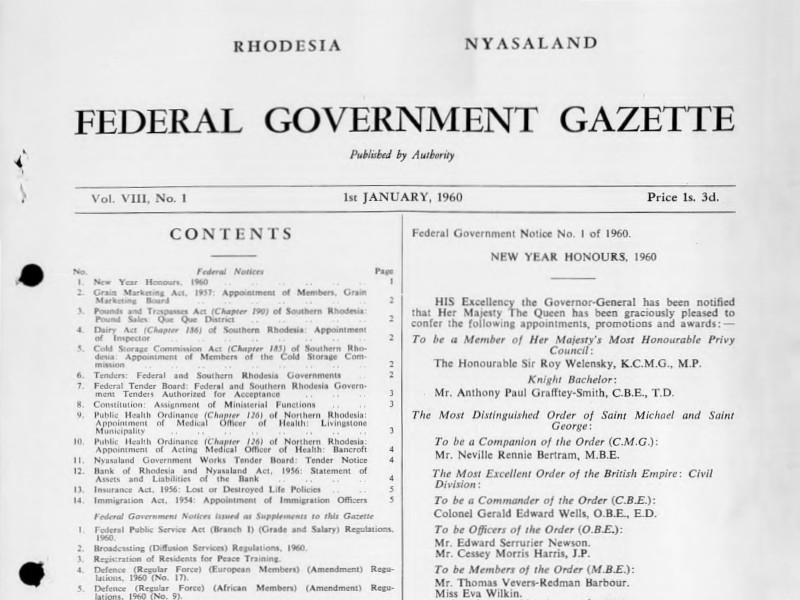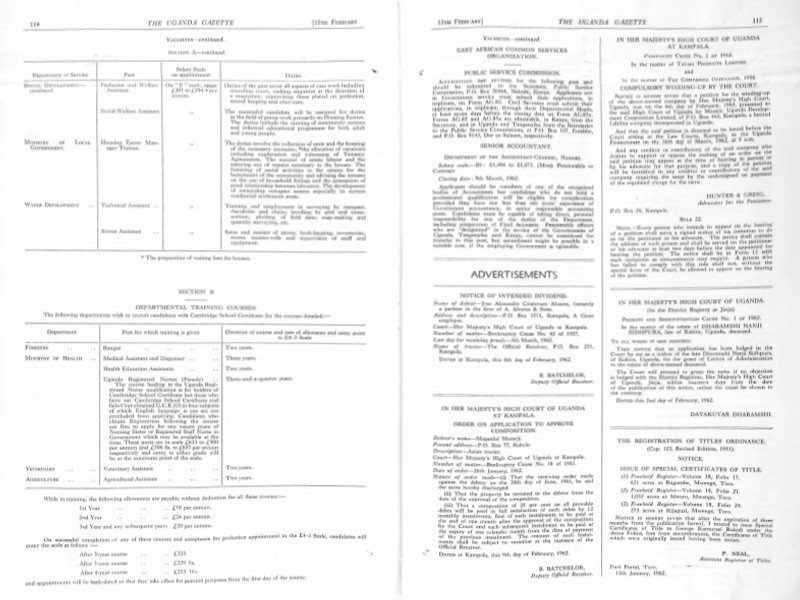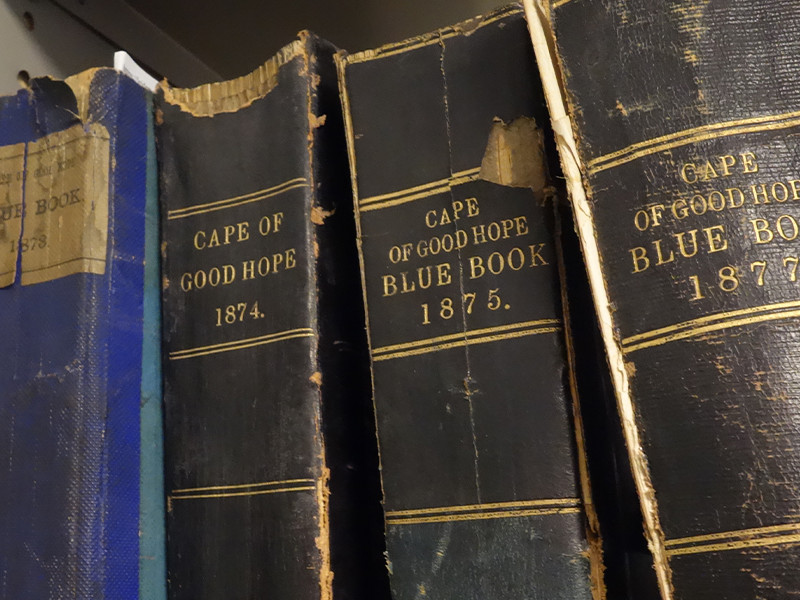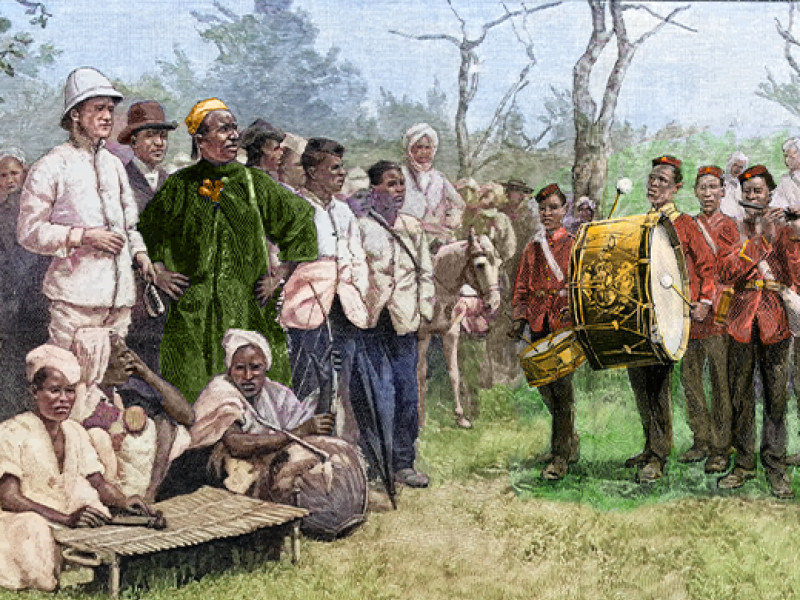Colonial Law in Africa, 1946–1966

African Government Gazettes, 1946–1966
In exercise of the powers conferred upon him the Governor has been pleased to order that: No person in the area set out in the Schedule shall be out of doors between the hours of 6pm and 6am except with the written permission of an authorized officer or of a member of Her Majesty’s forces not below the rank of warrant officer9 March 1959
Access the full collection
Access the full archive of Colonial Law in Africa, 1946–1966.
Institutional Free Trial
Start your free trialRegister for a free 30-day trial of Colonial Law in Africa, 1946–1966, for your institution.
Institutional Sales
Visit Sales PagesellFor more information on institutional access, visit our sales page.
Already have a license? Sign in.
Legislation from the Mau Mau uprising to the creation of the first legislative councils

The legal system that a country has developed can provide fascinating insights into its social, cultural, and political history. This collection covers the period from January 1946 to December 1966. It provides the opportunity to explore the laws implemented by successive British governments throughout their African colonies.
During the nineteenth and twentieth centuries the British government published gazettes on an annual basis. These outlined the colonial laws that were implemented in its African territories. This collection, drawn from the records of the British Foreign & Commonwealth Office, brings together numerous gazettes. The volumes within this collection are divided by country. These include: Basutoland (Lesotho), Kenya, Lagos (Nigeria), Northern Rhodesia (Zambia), Nyasaland (Malawi), Sierra Leone, Southern Rhodesia (Zimbabwe), The Gambia, Gold Coast (Ghana), Uganda, Zanzibar (Tanzania), and Tanganyika (Tanzania).
Some documents address major historical events such as the rebuilding efforts that followed the Second World War, the Mau Mau uprising in Kenya, and several countries gaining their independence. The gazettes also include key information such as shipping records, legislation, probate records, and land sales. The collection also sheds light upon government finances and trading: imports, exports, and colonial finances are detailed in some gazettes.
Colonial Law in Africa, 1946–1966 is the third collection in British Online Archives’ three-part series Colonial Law in Africa. This collection provides an extensive survey of British rule throughout Africa. It is a rich resource for students and researchers interested in Africa and the themes of colonialism and race in modern history.
Contents

Highlights
Insights
The gazettes cover a period that saw the rebuilding of Tanzania following the Second World War, the Mau Mau uprising, riots in Malawi following its union with Zambia and Zimbabwe, and the death of the Sultan of Zanzibar in October 1960. Throughout these decades several countries also gained independence.
Unlike other government publications, the gazettes within this collection provide detail of laws that were either new or that had been amended.
This collection is an important resource for the study of British rule in Africa. The legal notices within the gazettes reveal the issues that were considered important enough to be addressed by the introduction of a new law.
The documents in this collection contain legal reports, colonial finances, court records, shipping records, licence applications, names of colonial officers, and record of imports and exports. Some of the volumes also contain weather recordings.
Unlock Historical Research for Your Institution
Provide your students and researchers with direct access to unique primary sources.
